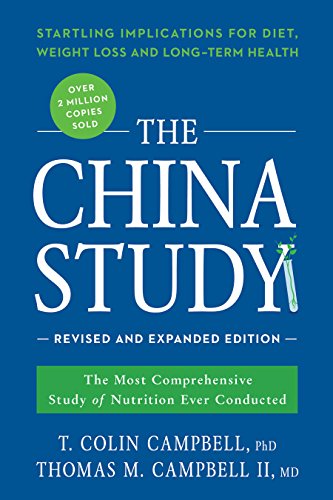

This article is an excerpt from the Shortform summary of "The China Study" by Colin Campbell. Shortform has the world's best summaries of books you should be reading.
Like this article? Sign up for a free trial here .
You don’t have to resign yourself to cognitive impairment or dementia as you age. Diet can go a long way toward protecting the health of your brain and decreasing your risk of Alzheimer’s. So, what are the risk factors of dementia? And what are the best foods for dementia prevention?
We’ll look at the risk factors of dementia and cognitive impairment and how eating the best brain foods can aid in dementia prevention.
Cognitive Impairment and Dementia
By 2050, 14 million people will have Alzheimer’s, which is a leading cause of death in the U.S. Alzheimer’s, a form of dementia, develops when the protein beta-amyloid forms plaque in the brain.
Cognitive impairment is less serious than dementia, involving confusion and mild memory loss. But people with mild cognitive impairment have ten times the risk of developing dementia as those who don’t. Let’s look at the risk factors for both of these widespread brain health issues.
Risk Factors for Dementia
Cognitive impairment, cardiovascular disease, stroke, and Type 2 diabetes tend to occur in the same populations and sometimes in the same individuals. Therefore, they share many of the same risk factors:
Risk Factor for Dementia #1: Hypertension, which can be controlled by eating fewer animal foods.
Risk Factor for Dementia #2: High Blood Cholesterol, which also can be controlled by eating fewer animal foods.
Risk Factor for Dementia #3: Free Radicals, which, again, can be controlled by eating fewer animal foods. Animal protein escalates the damage of free radicals, while plant foods, which contain antioxidants, fight free radicals.
Risk Factor for Dementia #4: Genetic Predisposition
Genes play a role, but as we’ve seen with other diseases, this role is minimal compared with other factors.
Studies have shown this time and time again. Japanese men living in Japan have a lower rate of Alzheimer’s than Japanese American men living in Hawaii. Africans have a lower rate of Alzheimer’s than African Americans. Because in each of these studies the groups compared shared a genetic heritage, the findings demonstrate that genes are not as important as environmental factors in the formation of Alzheimer’s.
Dementia Prevention: Diet and Brain Health
There’s a lot of research supporting the idea that cognitive impairment and dementia aren’t inevitable. We can dramatically lower our risk by changing our diets. What we eat is important for Alzheimer’s disease prevention and dementia prevention more generally.
Scientists have found the following associations between diet and dementia prevention:
1. Populations that eat more fat and cholesterol and fewer grains have higher rates of Alzheimer’s. Eat more grains and less fat.
2. Vitamins E and C, found in plant foods, and selenium, found in both animal and plant foods, reduce free radical activity and are associated with less memory loss. Eat more vitamin E, C, and selenium-rich plant foods.
3. Older adults who consume the most vitamin C and beta-carotene score the best on tests of mental acuity. Eat more orange plant foods.
4. Adding three more servings of fruits and vegetables to your daily diet can reduce your risk of stroke by 22%. Reducing your stroke risk reduces your risk of vascular dementia. Eat more fruits and vegetables.
5. Low blood levels of folic acid, found in plants, increases risk. Eat more leafy greens, beans, and grains.
6. High blood levels of homocysteine, found in animal foods, increases risk. Eat fewer animal foods.
Dementia Prevention: Summary of Recommendations
The point of all these studies? Eat more plant foods and fewer animal foods for dementia prevention.
Following a whole foods, plant-based diet can aid in Alzheimer’s disease prevention and dementia prevention more generally.
———End of Preview———

Like what you just read? Read the rest of the world's best summary of "The China Study" at Shortform . Learn the book's critical concepts in 20 minutes or less .
Here's what you'll find in our full The China Study summary :
- Why animal proteins (meat, milk) might cause cancer, diabetes, and other diseases
- Why the medical institution is structured to hide the truth about disease and food
- The precise diet you'll need to eat to live longer and feel happier






